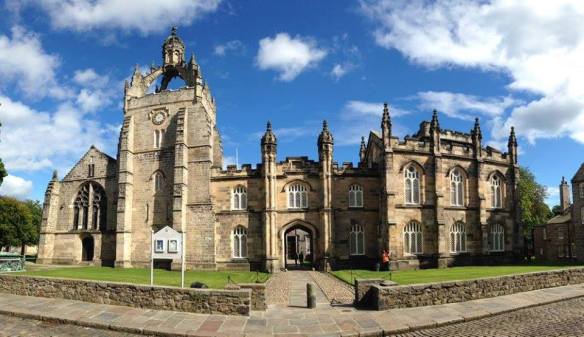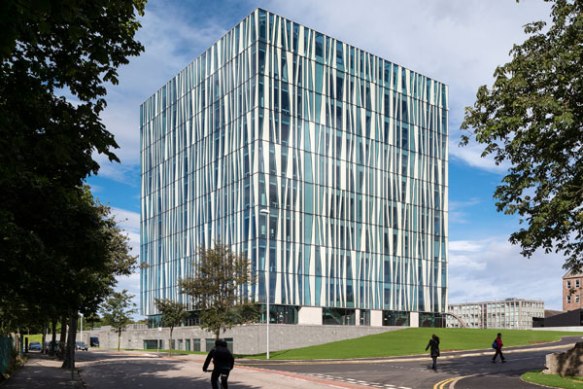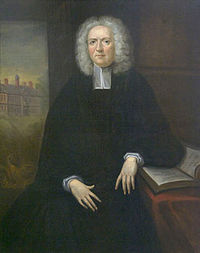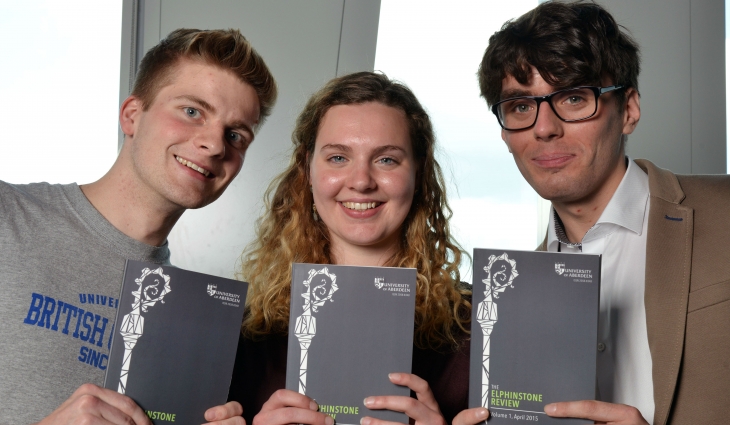Rankings have become an important factor in students’ decision about where to study. While the methodology and validity of university rankings may be disputed, rankings can be a useful way for international students, but only alongside other factors including size, location, majors on offer and the ‘feel’ of the campus.
An Ancient University
 The University of Aberdeen was established in 1495, making it the third oldest university in Scotland and the fifth oldest university in the English-speaking world. Aberdeen is one of seven Ancient Universities of Great Britain and Ireland, along with the University of Oxford, the University of Cambridge, the University of St Andrews, the University Glasgow, the University of Edinburgh and the University of Dublin.
The University of Aberdeen was established in 1495, making it the third oldest university in Scotland and the fifth oldest university in the English-speaking world. Aberdeen is one of seven Ancient Universities of Great Britain and Ireland, along with the University of Oxford, the University of Cambridge, the University of St Andrews, the University Glasgow, the University of Edinburgh and the University of Dublin.
The beautiful setting of our historic Old Aberdeen campus provides a daily reminder of our proud history and heritage. This hidden gem of Scotland, which was recently named amongst the Top Ten Most Beautiful Historic Universities in the UK by QS Top Universities website, features numerous architectural treasures including King’s College, with its crown tower and chapel.
Other major attractions include the medieval St Machar’s Cathedral, the Brig o’ Balgownie and the 18th century Old Townhouse, which today houses one the University’s numerous museum collections.

The University has also invested heavily in new teaching, research and recreational facilities in recent years, including most notably the £57 million Sir Duncan Rice Library, which was officially opened on 24th September 2012 by Her Majesty Queen Elizabeth. The library houses the largest of the University’s modern collections over 7 floors as well as historic collections of rare books, manuscripts and archives in the Special Collections Centre on the Lower Ground Floor. The Danish-designed building, presents a high tech contrast to the University’s historic campus and was recently listed amongst the “20 Most Spellbinding University Libraries in the world” by the Independent newspaper.
Other recent additions include the Aberdeen Sports Village and our new Aquatics Centre, which features an Olympic standard Swimming Pool and Diving Boom.
The university campus is also home to a number of other fascinating curiosities, including the Cruickshank Botanic Garden, which features numerous varieties of plants, including a rose garden, arboretum, lawns and ponds stretching over 11 acres. The University’s Zoology Museum is officially classified as a Recognised Collection of National Significance to Scotland and features displays from protozoa to the great whales, including taxidermy, skeletal material, study skins, fluid-preserved specimens and models.
Famous Scholars and Alumni
 Our students share a great sense of pride in our 500 year record of scholarship, which includes the work of eminent scholars such as:
Our students share a great sense of pride in our 500 year record of scholarship, which includes the work of eminent scholars such as:
- James Blair (1656-1743), founder and first President of the College of William and Mary in the USA
- George Campbell (1719-1796), a founding member of ‘The Wise Club’, or Aberdeen Philosophical Society, and leading figure in the Scottish Enlightenment
- Nicky Campbell, Journalist, Radio and TV Presenter
- Bruce Allan Clark, prominent Canadian lawyer and indigenous tribes activist
- Mathematician James Clerk Maxwell (1831-1879), Einstein’s hero, who carried out revolutionary work on electricity and magnetism
- Kezia Dugdale, leader of the Scottish Labour Party
- Martin James Gilbert, Chief Executive and co-founder of Aberdeen Asset Management plc, one of the largest international investment management companies in the UK
- Sarah Gillett, British Ambassador to Norway
- Mathematician and Astronomer, James Gregory (1638-1675), who described the first practical reflecting telescope now called the Gregorian telescope
- Actor Iain Glen, known for his roles in the Resident Evil films and for portraying Ser Jorah Mormont on Game of Thrones
- Professor Lesley Anne Glover, Professor of Molecular Biology and Cell Biology at the University of Aberdeen, serves as Chief Scientific Adviser to the President of the European Commission. Professor Glover was named as the 19th most powerful woman in the United Kingdom by BBC Radio 4 in 2013
- Professor Andrew Hurst whose awards include the Geological Society of London s William Smith Award (1993); the European Association of Geoscientists & Engineers Wegener Medal (2004); and the American Association Of Petroleum Geologists Distinguished Service Medal (2007)
- Dr Adrian Ivinson, Director, Harvard NeuroDiscovery Center, Harvard Medical School
- Professor Marcel Jaspars, Chair in Chemistry and Director of the University’s Marine Biodiscovery Centre, and recognised authority in the discovery of new pharmaceuticals and enzymes from marine biodiversity
- Sir Kai Ho Kai, a founder of the University of Hong Kong.
- Professor Alex Kemp, Professor of Petroleum Economics, and advisor to the UK government and the Scottish government on forecasts for oil production and revenue
- Richard Klein, former Controller of BBC4
- Professor Hans Kosterlitz, widely regarded as the discoverer of endorphins, the body’s own natural opiates
- Nobel Prize winner JJR McLeod (1923) for his research which led to insulin as a treatment for diabetes
- Hugh Mercer (1726-1777) Brigadier General in the US Continental Army and close friend to George Washington
- Professor John Mallard OBE, whose ground-breaking work at Aberdeen led to the development of the modern MRI (Magnetic Resonance Imaging) machine
- Patrick Manson, the founder of the field of Tropical Medicine and a founder of the University of Hong Kong
- Dr Paul Mealor, Professor in Composition at the University of Aberdeen composed the music for the wedding of Prince William and Kate Middleton in 2011
- Nobel Prize winner Lord Boyd Orr (1947), in recognition of his contribution to the worldwide fight against hunger
- Professor Hugh Pennington, Chair of Bacteriology from 1979-2003, one of the world’s leading experts on food safety
- Professor Roger Pertwee, recipient of the Wellcome Gold Medal (2011), which is presented every two years by the British Pharmacological Society
- The Hon A Gail Prudenti, Chief Administrative Judge of the Courts of New York State
- Philosopher Thomas Reid (1710-1796), the founder of the Scottish School of Common Sense who played an integral role in the Scottish Enlightenment
- Ali Smith, prize-winning author of Hotel World and The Accidental
- William Smith (1727-1803), the first Provost of the University of Pennsylvania
- Nobel Prize winner Frederick Soddy (1921), for his work on radioactivity and isotopes
- Sir Thomas Sutherland (1834-1922), founder of HSBC Bank, then known as the Hong Kong and Shanghai Banking Corporation
- Nobel Prize winner, Richard L M Synge (1952), for the invention of partition chromatography – a technique used in the separation mixtures of similar chemicals that revolutionised analytical chemistry
- Nobel Prize winner Sir George Paget Thomson (1937) who, together with the American physicist C J Davisson, was awarded the Nobel prize “for their (independent) experimental discovery of the diffraction of electrons by crystals”
- Dr William Thornton (May 20, 1759 – March 28, 1828) the architect who designed the United States Capitol in Washington DC
- Professor Iain Torrance, President of Princeton Theological Seminary
- Bertha Wrenham Wilson, Canadian jurist and the first female Puisne Justice of the Supreme Court of Canada
Royal Connections
Camilla, Duchess of Cornwall and wife of Prince Charles was formally installed as Chancellor of the University of Aberdeen at a special ceremony in June 2013. Dr Paul Mealor, Professor in Composition at the University of Aberdeen composed the music for the wedding of Prince William and Kate Middleton in 2011.
Rankings
- The University of Aberdeen is ranked 55th in the world in the CWTS Leiden Rankings based on the proportion of research appearing in the top 10% of international journals.
- The University of Aberdeen is ranked 137th in the QS World University Rankings, placing it in the top 1% of universities around the world.
- Aberdeen is ranked 37th in the world in the Times Higher Education (THE) 2016 list of the world’s most international universities. This list ranks universities on the basis of student diversity and the extent of its global academic collaborations.
- The University of Aberdeen is ranked 65th in the world for Life Sciences in the THE World University Rankings, 2014.
- The University of Aberdeen is ranked 6th in the UK for Geology, according to the latest Complete University Guide rakings.
- According to the 2014 Research Excellence Framework (REF) – the largest ever survey of research in UK higher education institutions, 76% of our research is ‘world leading’ or ‘internationally excellent’.
- The University of Aberdeen’s Medical School was ranked the number 1 medical school in Scotland by the Complete University Guide, 2014-15.
- In the QS Subject Rankings 2015, the University of Aberdeen is ranked in the Top 100 in the world for Agriculture, Forestry and Environmental Science, and in the Top 200 in the world for English Language & Literature, History, Law, Philosophy, Geography, Civil Engineering, Medicine, Pharmacology, Education and Earth & Marine Sciences
 We are all looking forward to next week’s May Festival, the annual celebration of the joy and inspiration of books, music, film, science, food, history, nature, sport and more in the glorious setting of Old Aberdeen.
We are all looking forward to next week’s May Festival, the annual celebration of the joy and inspiration of books, music, film, science, food, history, nature, sport and more in the glorious setting of Old Aberdeen.
.png) The University of Aberdeen has signed an agreement that will encourage greater ties between the University and Mexico’s energy sector. A Memorandum of Understanding (MoU) was signed by University Principal, Professor Sir Ian Diamond, and Emilio Lozoya Austin, CEO of state-owned Mexican oil company Petróleos Mexicanos (PEMEX), during yesterday’s visit of Mexican President Enrique Pena Nieto to Aberdeen.
The University of Aberdeen has signed an agreement that will encourage greater ties between the University and Mexico’s energy sector. A Memorandum of Understanding (MoU) was signed by University Principal, Professor Sir Ian Diamond, and Emilio Lozoya Austin, CEO of state-owned Mexican oil company Petróleos Mexicanos (PEMEX), during yesterday’s visit of Mexican President Enrique Pena Nieto to Aberdeen. The signing of the MoU took place during a ceremony at the city’s Town House which was held to welcome the President, and involved political leaders and industry figures. The President was later addressed by John Scrimgeour, Director of the
The signing of the MoU took place during a ceremony at the city’s Town House which was held to welcome the President, and involved political leaders and industry figures. The President was later addressed by John Scrimgeour, Director of the  The University of Aberdeen was established in 1495, making it
The University of Aberdeen was established in 1495, making it 
 Our students share a great sense of pride in our 500 year record of scholarship, which includes the work of eminent scholars such as:
Our students share a great sense of pride in our 500 year record of scholarship, which includes the work of eminent scholars such as:
 Figuring out what to pack for university in Scotland can be tricky. Firstly, there is the unpredictable weather. Then there are things like what else you might need apart from clothes, such as electronics, books and other home comforts. With ever-increasing restrictions on airline baggage allowances, the best advice is to pack light and only take what you will actually need. This list is not exhaustive, but here are a few tips on things you will definitely want to take with you…
Figuring out what to pack for university in Scotland can be tricky. Firstly, there is the unpredictable weather. Then there are things like what else you might need apart from clothes, such as electronics, books and other home comforts. With ever-increasing restrictions on airline baggage allowances, the best advice is to pack light and only take what you will actually need. This list is not exhaustive, but here are a few tips on things you will definitely want to take with you…